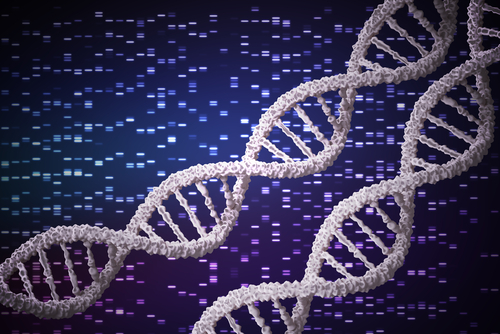Genetic Predisposition to Obesity May Protect Against Breast, Prostate Cancer, Study Suggests

Genetic predisposition to weight gain might protect against breast and prostate cancer, a new large study from the U.K suggests.
The findings contradict prevailing theory — and public health advice — and imply that the relationship between obesity and cancer risk is more complicated than previously thought.
The study, “Increased adiposity is protective for breast and prostate cancer: A Mendelian randomisation study using up to 132,413 breast cancer cases and 85,907 prostate cancer cases,” was presented by Hasnat Amin, a doctoral student at Brunel University London and the study’s lead author, during the American Society of Human Genetics 2020 Virtual Meeting.
Amin and his colleagues looked for evidence of links between obesity and cancer risk using data from the U.K. Biobank, a nationwide long-term study of more than 500,000 people. The team focused on common types of cancer — breast cancer is the most frequent type in women, and prostate cancer the most common in men — and compared rates of cancer between people who are genetically predisposed to be heavier or lighter.
Specifically, the scientists used statistical approaches to analyze the effect of obesity measures such body mass index (BMI), body fat percentage, waist circumference, and hip circumference on cancer risk. The findings were confirmed using data from the BCAC — 122,977 breast cancer cases and 105,974 controls — and PRACTICAL (79,194 prostate cancer cases and 61,112 controls) consortia.
Results showed that genetic likelihood for higher BMI and waist circumference is associated with lower risk of breast cancer. In turn, greater BMI, waist circumference, and body fat percentage correlated with lower prostate cancer risk, an association also seen when taking into account genetic factors.
These findings suggest that the previous observations of increased incidence of breast cancer in heavier women is likely due to additional factors.
Men exposed to carcinogenic (cancer-causing) substances appeared to benefit even more from the potentially protective effect of adipose (fat) tissue. This may support the hypothesis that fat cells absorb and safely store toxins.
“In conclusion, increasing adiposity is causally protective for [breast cancer and prostate cancer],” the team wrote.
Notably, the investigators do not suggest weight gain as a cancer prevention strategy. They would, however, like to see public health messages take these positive effects into account, alongside obesity’s negative consequences.
A recent campaign by Cancer Research U.K., for example, listed obesity as a cancer risk factor that’s equal to or greater than smoking.
“Public health campaigns frequently describe obesity as being a causal risk factor for cancer and, therefore, portray weight loss as an effective cancer prevention strategy,” Amin said in a press release. “However, our findings contradict this idea.”
“Furthermore,” he added, “there may even be certain risks in advising fat loss if, for example, fat cells are involved in the absorption of carcinogenic substances.”
The current discovery paves the way for future research into how genetic predisposition toward obesity might protect against cancer. Understanding these details would be a critical part of an effective public health strategy.
“It’s first necessary to figure out the mechanisms through which obesity may protect against or be a risk factor for cancer,” Amin said. “The next step would be to use these mechanisms to maximize the protective effect of obesity on breast and prostate cancer risk without the often reported negative effects of increased weight on cardiometabolic health.”




